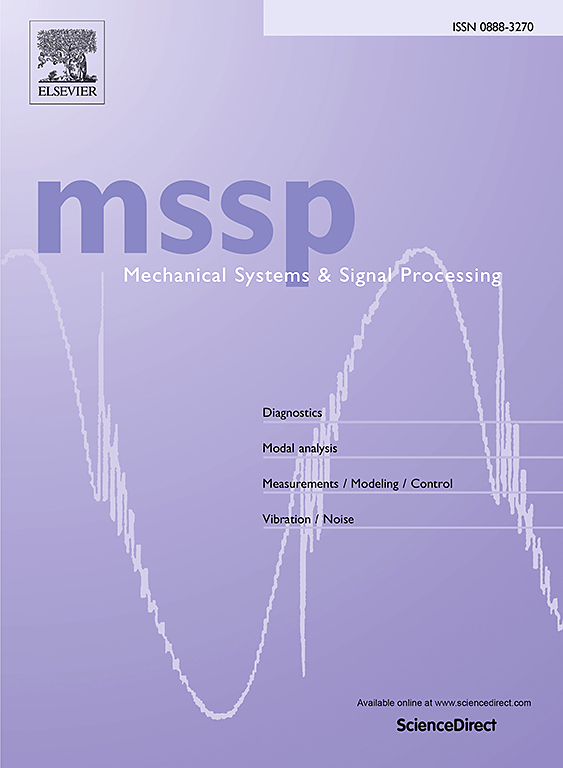Comparative analysis of data-driven autoencoder networks for full-field expansion from sparse measurements
IF 7.9
1区 工程技术
Q1 ENGINEERING, MECHANICAL
引用次数: 0
Abstract
Condition monitoring relies on data collected from a system with sensors to extract information about its state. The difficulty in deploying highly dense distributions of sensors hinders the detection of local damage in the system. To address this issue, domain-specific techniques have been developed that can expand measurements from a discrete subset of data (i.e., sparse measurements) to full-field. However, these domain-specific expansion techniques have shown limitations when used with non-linear dynamic systems. Recent advancements in machine learning algorithms, particularly autoencoder (AE) networks, can improve the robustness of expansion techniques to non-linear systems as well as generalize their applicability to other domains. In this research, three AE architectures, based on feed-forward networks, convolutional neural networks, and long short-term memory (LSTM) networks, are proposed to reconstruct the full-field response of a targeted dynamic system when only sparse measurements are available. The performance of the three architectures is compared as a function of i) the location of measurement points, ii) the spatial density of the measurement points, and iii) the noise present in the signal collected at each measurement point. Tests performed on analytical and experimental datasets indicate that all three architectures successfully expanded to full-field data from sparse measurements, with LSTM exhibiting errors below 0.85% in the expansion process. Advancements of this research could lead to the application of AE-based expansion techniques for condition monitoring of dynamic systems when only a limited number of measurements are available.
稀疏测量全场扩展数据驱动自编码器网络的比较分析
状态监测依赖于从带有传感器的系统收集的数据来提取有关其状态的信息。部署高密度传感器分布的困难阻碍了对系统局部损伤的检测。为了解决这个问题,已经开发了特定领域的技术,可以将测量从离散的数据子集(即,稀疏测量)扩展到整个领域。然而,这些领域特定的扩展技术在用于非线性动态系统时显示出局限性。机器学习算法的最新进展,特别是自编码器(AE)网络,可以提高扩展技术对非线性系统的鲁棒性,并将其适用性推广到其他领域。在本研究中,提出了基于前馈网络、卷积神经网络和长短期记忆(LSTM)网络的三种声发射体系结构,用于在只有稀疏测量时重建目标动态系统的全场响应。将三种架构的性能作为i)测量点位置的函数进行比较,ii)测量点的空间密度,以及iii)每个测量点收集的信号中存在的噪声。在分析和实验数据集上进行的测试表明,这三种架构都成功地从稀疏测量扩展到全场数据,LSTM在扩展过程中的误差低于0.85%。这项研究的进展可能导致基于ae的扩展技术在只有有限数量的测量可用时用于动态系统的状态监测。
本文章由计算机程序翻译,如有差异,请以英文原文为准。
求助全文
约1分钟内获得全文
求助全文
来源期刊

Mechanical Systems and Signal Processing
工程技术-工程:机械
CiteScore
14.80
自引率
13.10%
发文量
1183
审稿时长
5.4 months
期刊介绍:
Journal Name: Mechanical Systems and Signal Processing (MSSP)
Interdisciplinary Focus:
Mechanical, Aerospace, and Civil Engineering
Purpose:Reporting scientific advancements of the highest quality
Arising from new techniques in sensing, instrumentation, signal processing, modelling, and control of dynamic systems
 求助内容:
求助内容: 应助结果提醒方式:
应助结果提醒方式:


